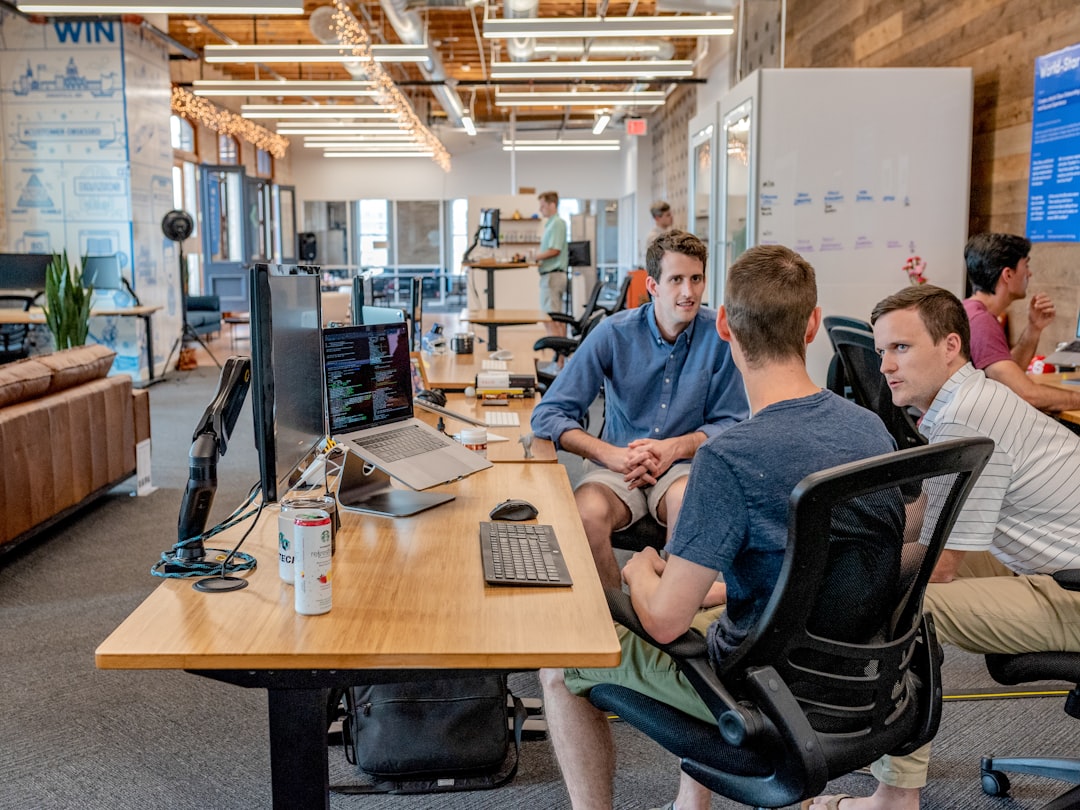7 Emerging AI Job Roles Reshaping the Tech Landscape in 2024
7 Emerging AI Job Roles Reshaping the Tech Landscape in 2024 - AI Ethics Officers Guiding Responsible Development

As AI technologies become more ingrained in our lives, the need for ethical guidance in their development is paramount. AI Ethics Officers, a relatively new role, are emerging as crucial figures in shaping responsible AI practices. They are responsible for developing and enforcing ethical guidelines that ensure AI systems operate within the bounds of societal values and legal frameworks.
These individuals, often working alongside AI Governance Managers and Chief AI Ethics Officers, are tasked with ensuring that fairness, transparency, and accountability are woven into the fabric of AI systems. Their focus is on mitigating the potential risks of AI, including bias, discrimination, and privacy violations. This commitment to ethical development is not merely a response to public pressure but a recognition that ethical practices are essential for long-term trust in AI and its potential for positive societal impact.
It's fascinating to see the rise of the AI Ethics Officer. It's no longer just about legal compliance; it's about shaping the entire user experience and ensuring the technology doesn't clash with our values. This role needs people who can bridge the gap between technology, law, philosophy, and social science, a truly interdisciplinary challenge.
The trend is moving away from relying solely on existing legal or compliance teams. Now, dedicated ethical AI teams are becoming commonplace. It's refreshing to see this shift, but I do wonder if these teams will be truly empowered to push back on the "tech first, ethics later" mentality that still pervades many companies.
I'm also curious about the growing focus on training AI Ethics Officers. Simulation exercises to prepare them for real-world dilemmas are a step in the right direction, but are we truly equipping them with the critical thinking skills to navigate the constant evolution of AI? Can these exercises truly anticipate every ethical blind spot that could emerge?
The demand for these roles is booming, which is a good sign. But as someone who works on these technologies, I'm concerned that the emphasis on "ethics" is often a response to public pressure rather than a deeply rooted commitment. I hope the role of the AI Ethics Officer goes beyond simply placating consumers and truly impacts how we build and deploy AI.
7 Emerging AI Job Roles Reshaping the Tech Landscape in 2024 - Prompt Engineers Crafting Effective AI Interactions

Prompt engineers are becoming increasingly important in the tech world, especially in 2024. They're basically the architects of how we interact with AI, crafting the perfect "prompts" that make AI systems behave as we want. It's a job that's drawing in high salaries, showing how crucial it is to get AI to work effectively.
To be a good prompt engineer, you need to understand the science of how AI processes language – Natural Language Processing (NLP) is a key skill. But it's not just about technical knowledge, there's a creative side to it too. You need to be able to think clearly and communicate what you want from AI in a way it can understand. The ability to think outside the box and adapt prompts to get the best out of an AI system is a key skill.
The rise of prompt engineering is a sign of how deeply AI is becoming part of our lives, from business to entertainment. It's all about making sure we can interact with these powerful systems smoothly and get the results we're looking for.
Prompt engineering is a fascinating field, and it's rapidly evolving with the growth of AI. The power of a prompt is remarkable – a slight change in wording can dramatically affect an AI's response. This means that prompt engineers are essentially language architects, shaping how people interact with these complex systems. They aren't just coding; they're delving into the psychology behind how humans process information, crafting prompts that cater to our cognitive biases for more effective engagement. It's an interdisciplinary field, drawing on linguistics, behavioral science, and even a touch of art, making it a really unique career path.
The challenge for prompt engineers is keeping up with the rapid pace of AI development. Large language models are evolving constantly, which means their behavior can change overnight. This makes it tricky to ensure consistent user experiences, as prompts that worked yesterday might produce wildly different results today.
What's interesting is that coding skills aren't the be-all and end-all. It's more about crafting precise, context-aware prompts that really capture what the user is looking for. And these prompts need to be accessible to diverse audiences, so they need to consider demographics and how language impacts understanding. It's not just about the technology; there's a strong social and cultural element to it too. It's important to be aware of biases and how they might be reflected in language, to prevent unintended consequences.
There's even a bit of creative freedom within prompt engineering. Combining multiple prompts can create a synergy effect, leading to more accurate and nuanced responses than any single prompt could achieve. And then there's the gamification aspect. Companies are using games and competitions to encourage teams to come up with innovative and effective prompts, which seems to be boosting engagement and problem-solving skills.
However, with the emergence of automated prompt generation tools, a new challenge arises. While these tools can streamline the process, they risk stripping away the human touch that's crucial for crafting truly impactful interactions. These interactions need to be nuanced and resonate with users on a deeper level, something that automated tools might not be able to capture. This begs the question – is there a risk of AI-generated prompts becoming too generic, losing the unique voice that sets them apart? It's a fascinating area to watch unfold.
7 Emerging AI Job Roles Reshaping the Tech Landscape in 2024 - AI Data Privacy Specialists Ensuring Information Security

In the rapidly evolving landscape of AI, the role of AI Data Privacy Specialists is gaining prominence. They're the guardians of data, tasked with ensuring information security within AI systems. These specialists are skilled in navigating the complex world of data privacy regulations, like GDPR, and implementing robust security measures. They focus on access controls, multi-factor authentication, and data encryption, all crucial elements in safeguarding sensitive information.
The growing importance of this role highlights the intersection between AI development and cybersecurity. It's no longer enough to just build AI systems; we need to ensure that they're secure and respectful of user privacy. This requires a dedicated focus on data protection, which is where AI Data Privacy Specialists come into play. It's a challenging field, but it's vital for building trust in AI and ensuring its responsible development.
The demand for AI Data Privacy Specialists has exploded, with job postings increasing by over 50%. It's clear that companies are finally waking up to the importance of protecting data in an AI-driven world. But this isn't just a matter of ticking boxes; it's a complex landscape of international regulations that often have conflicting requirements. Just imagine trying to navigate the maze of GDPR in Europe, CCPA in California, and countless other laws, each with different rules and penalties! It's enough to make your head spin.
The stakes are high, too. Data breaches cost companies an average of over $4 million each, and that's not even counting the potential damage to reputation and customer trust. It's a serious matter, and it's why AI Data Privacy Specialists are so crucial.
And it's not just about protecting sensitive data. AI itself can be used to de-anonymize data, which means that even seemingly innocent datasets could be used to identify individuals. This raises some serious ethical questions about how we use AI and what kind of information we deem safe to share.
The emergence of quantum computing is throwing another wrench into the works. It has the potential to crack our current encryption methods, which means that data privacy specialists need to be constantly evolving, seeking new cryptographic solutions to stay ahead of the curve.
I think it's interesting that public trust is such a significant factor. Studies have shown that 70% of people are hesitant to share their data with AI-powered systems due to privacy concerns. This highlights the importance of building systems that inspire confidence in the public, and it's why the role of AI Data Privacy Specialists is becoming so vital.
They're not just technologists; they need to be experts in law, behavioral science, and statistics, because the challenges of data privacy are interwoven with human behavior and social norms. They need to be able to understand how people interact with data, how they think about their privacy, and how they react to different data protection strategies. It's a really interdisciplinary approach that's crucial to getting data privacy right in an AI-driven world.
The good news is that there's a growing shift towards proactive data privacy, where the focus is on prevention rather than remediation. It's not just about patching holes in existing systems; it's about designing secure systems from the ground up.
However, open-source software is becoming increasingly popular for data encryption. While this can be a powerful tool, it also introduces new risks, as vulnerabilities could be exploited. It's essential for AI Data Privacy Specialists to stay on top of open-source software trends and assess their security implications.
Ultimately, the rise of AI Data Privacy Specialists is a necessary evolution in how we think about data security. As AI systems become more autonomous, they also raise profound questions about consent, transparency, and accountability. It's not just about safeguarding personal information; it's about ensuring that AI technology aligns with our values and respects fundamental human rights. It's a complex, constantly evolving field, and one that will shape the future of how we interact with technology.
7 Emerging AI Job Roles Reshaping the Tech Landscape in 2024 - Machine Learning Operations Managers Streamlining AI Workflows

The need for Machine Learning Operations Managers is on the rise as companies work to make their AI systems work smoothly. They act as the link between the world of AI and everyday business processes. MLOps managers use principles from both machine learning and DevOps to manage the complete life cycle of an AI project, from creating the model to deploying it and keeping it working. Their goal is to make sure AI models are seamlessly integrated into how a business operates. They aim to reduce mistakes, speed up decisions, and make the entire organization more efficient. With the world of AI becoming more complex, skilled leaders are needed to manage these systems efficiently. The demand for these professionals is likely to increase as businesses increasingly rely on AI.
Machine Learning Operations (MLOps) Managers are becoming increasingly important in the tech landscape. They aren't just traditional managers, they need a wide range of skills to bridge the gap between data scientists, IT staff, and business stakeholders. It's a demanding role that requires a lot of collaboration and communication to ensure everyone is on the same page.
MLOps practices are making a real difference. They're leading to faster deployment of AI models – in some cases, deployments are happening 50% faster! This is because MLOps streamlines processes and automates tasks. The use of automation tools is significantly reducing human error, often by over 30%. This means teams can spend more time innovating instead of fixing problems.
Another interesting aspect is that MLOps is driving down costs. Organizations that implement effective MLOps practices have seen a reduction in operational costs of up to 30% by optimizing resources and maintenance schedules. But MLOps is more than just saving money. It also helps companies manage the growing complexity of AI models. With new tools specifically designed for AI models, MLOps Managers can easily track changes and make sure that the code is replicable. This helps ensure that AI models are always performing as expected.
Of course, with greater complexity comes greater risk. This is where MLOps Managers are key. They conduct risk assessments, implement monitoring systems, and have helped reduce incident response times by 60%. These practices are vital to keeping AI systems secure and trustworthy.
The role of MLOps Managers is evolving alongside the industry. They are increasingly responsible for integrating governance frameworks into their workflows to ensure compliance with data privacy regulations. This is critical because the AI industry is facing increasing scrutiny about how it uses data. Also, the emergence of modular AI systems is leading to a greater reliance on third-party APIs and services. MLOps Managers need to be able to manage the integration of these services into their workflows, which can be a complex task.
The world of MLOps is becoming more sophisticated with the development of specialized tools. These tools are helping companies monitor, version, and deploy AI models more effectively. This change in how AI is managed highlights the importance of MLOps and its growing impact on the tech landscape.
7 Emerging AI Job Roles Reshaping the Tech Landscape in 2024 - AI-Human Collaboration Facilitators Bridging Technology and Workforce
As we enter 2024, the world of work is being reshaped by AI, and one of the most crucial emerging roles is that of the AI-Human Collaboration Facilitator. These individuals are tasked with bridging the gap between human workers and AI technology, fostering a more collaborative and productive relationship. It's about recognizing the strengths of both humans and AI – while AI excels at processing vast amounts of data and automating repetitive tasks, humans bring emotional intelligence, creativity, and problem-solving skills that AI simply can't replicate. AI-Human Collaboration Facilitators work to ensure that human workers are not simply replaced by AI, but empowered by it. They facilitate the integration of AI systems into the existing workforce, redefining skill sets and workflows, and ensuring that both humans and AI can work together to achieve their goals.
This approach requires significant effort in upskilling human workers and preparing them for a workplace where AI plays a more significant role. The challenge lies in ensuring that human workers feel comfortable and confident working alongside AI, that they understand how to leverage its capabilities, and that they are equipped with the skills needed to thrive in this new environment. Ultimately, the success of AI integration depends on the willingness of both workers and employers to embrace change and adapt to a new way of working.
The emergence of AI-Human Collaboration Facilitators is an intriguing development in the world of tech, especially as AI becomes more integrated into business processes. These individuals bridge the gap between humans and technology, ensuring seamless collaboration and user satisfaction. It's no longer just about building efficient AI systems; it's about creating a positive user experience, and that's where these facilitators come in.
It's fascinating to see how their role necessitates expertise in areas beyond pure technology, such as psychology and sociology. Understanding human behavior is crucial when designing interfaces that people actually want to use. This interdisciplinary approach is what makes these facilitators valuable.
Research suggests that these roles have a direct impact on employee satisfaction. When AI tools are designed with human needs in mind, workers feel more empowered and engaged, leading to a happier and more productive workforce.
Facilitators also need to be adept at communication and conflict resolution. They must be able to adjust their communication strategies based on user feedback and navigate situations where technology clashes with human preferences.
I'm also intrigued by the need for cultural sensitivity in this role. Technology adoption varies significantly across cultures, so facilitators must be able to tailor their approach to accommodate diverse user groups. It's a reminder that technology development isn't a universal process and must be localized to effectively engage everyone.
The impact of these facilitators can be measured in real-world results. Studies show that organizations utilizing these roles can experience productivity increases of up to 40% due to optimized AI-human workflows. This is a tangible benefit that goes beyond simply building technology and speaks to the power of human-centric design.
However, it's important to acknowledge the resistance that some employees might have towards automation. Facilitators act as change agents, working to alleviate fears and misconceptions about job displacement that might arise. It's crucial that they address these concerns and ensure a smooth transition for the workforce as technology evolves.
The emergence of AI-Human Collaboration Facilitators underscores the shift towards user-centered design principles. The focus is on creating AI tools that address real-world problems and meet user needs rather than simply showcasing technical prowess.
Finally, I think it's remarkable that this role has led to a re-evaluation of performance metrics in the technology sector. It's no longer enough to just measure output; we need to assess user engagement and satisfaction as well. This shift reflects a growing awareness that successful technology implementation goes beyond technical capabilities and relies heavily on human acceptance and engagement.
7 Emerging AI Job Roles Reshaping the Tech Landscape in 2024 - Quantum AI Researchers Exploring Next-Generation Computing

Quantum AI researchers are on the forefront of a new wave of computing. They're the bridge between quantum technology, which promises faster and more powerful processing, and the ever-evolving world of artificial intelligence. Their goal? To leverage the unique abilities of quantum computing to create smarter, more efficient AI systems, potentially revolutionizing industries.
But this isn't a walk in the park. The quantum workforce is still in its infancy, facing a similar talent gap that hampered the early adoption of AI. And while the excitement around this intersection of technologies is palpable, it's also sparking concerns. Will these new systems be used ethically? How will they impact our world?
As companies invest heavily in this burgeoning field, the need for skilled quantum AI researchers is growing. It's not just about coding; it's about understanding the potential, the limitations, and the societal implications of this technology.
## 7 Emerging AI Job Roles Reshaping the Tech Landscape in 2024 - Quantum AI Researchers Exploring Next-Generation Computing
The excitement around quantum computing is palpable these days. It's not just a buzzword anymore; it's becoming a reality with the development of powerful new processors called Quantum Processing Units (QPUs). Imagine a computer that can tackle complex problems that would take a traditional computer millennia to solve. That's the promise of quantum computing, and it's what makes it so intriguing.
Quantum AI researchers are the ones pushing the boundaries of what's possible, delving into the quantum realm to unlock its computational potential. They're essentially trying to teach AI to think like a quantum computer, leveraging concepts like superposition and entanglement—weird concepts that sound like something out of a sci-fi novel but are at the heart of how quantum systems work.
But there's a catch. Quantum computing, despite its amazing potential, is still in its early stages. It's plagued by error rates and a phenomenon called "decoherence," where qubits—the quantum equivalent of bits—lose their special quantum properties. It's like trying to juggle while riding a unicycle on a trampoline; it's incredibly challenging.
Despite these hurdles, researchers are making progress. They're developing algorithms that are tailored to quantum systems, like the Quantum Approximate Optimization Algorithm (QAOA), which has the potential to solve complex optimization problems, from traffic routing to financial modeling, much faster than traditional methods.
It's not just about computation, though. Quantum AI research is a fascinating intersection of computer science, physics, and even areas like materials science and chemistry. Imagine being able to simulate the behavior of molecules at an atomic level to develop new drugs or materials. That's the kind of potential that quantum AI offers.
There are also serious security implications. Quantum computers could potentially crack our current encryption methods, meaning that we need to develop new, quantum-resistant algorithms to protect our data in the future. It's a real concern, and it's something that researchers are working on.
It's quite an exciting time to be involved in quantum AI. The field is bursting with potential, but it's also fraught with challenges. It requires researchers to be not only technically adept but also deeply curious and creative, willing to push the boundaries of what's possible. We're still in the early innings of this game, but the stakes are high, and the rewards could be immense.
More Posts from whatsinmy.video: